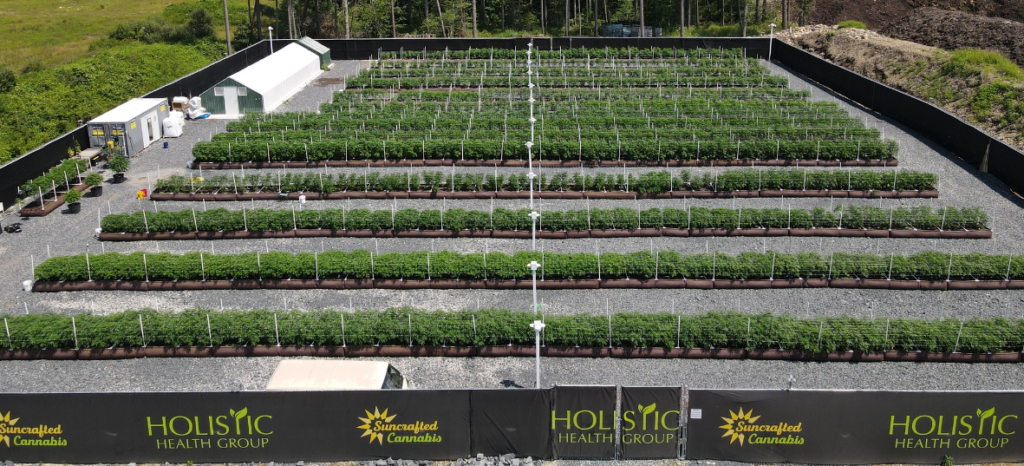Sustainable Design – HHG One
The reasons for seeking to reducing any business’ operations impact on our environment are plentiful, well-known and enmeshed with many present-day concerns in nearly every community worldwide. The world’s fossil fuel consumption predicament alone, essential as it is, causes several undesirable consequences: habitat destruction from mining, drilling, blasting and deforestation, severe atmospheric pollution and water source contamination just to start. When combined with economic or political turmoil, this source of energy becomes even more problematic as costs and prices increase on this de-facto necessity for heating and transportation.
And when it comes to cannabis, a fast growing and energy hungry plant, the impact of this activity on the composite energy grid has been raised as a major concern. Below are some digestible considerations from the National Conference of State Legislatures that help illustrate the issue:
- Average consumption in 5,000 sq./ft. indoor cannabis cultivation = 41kw/month, vs. 630 kwh/month = average household consumption.
- Cannabis production = 1 percent of national electrical use, 3 percent of usage in California.
- Indoor lighting intensities roughly 500 times greater than recommended reading levels.
- Four cultivation lights use as much electricity as 29 refrigerators.
- Energy used to produce on cannabis “joint” could produce 18 pints of beer.
Integrating with Nature & Cutting Out the Middle Man
The HHG One facility, home to the Suncrafted dispensary and other brands under Holistic Health Group, was designed from the ground up with the sustainable growth of plants (and people) in mind. Roughly half of the 35,000 square building is dedicated to hybrid greenhouse structures, allowing direct sunlight energy into the building during the most intense plant growth, in the flowering period. The building likewise incorporates natural light wherever possible in its office and production areas, ensuring lower light power consumption and better mental health for staff.
While the company has looked at solar power options for some of its energy needs, the design decided to “cut out the middle man” by using its roof areas to incorporate, rather than manipulate, the sun’s energy in plant growth. Greenhouse applications have long been the norm in all other produce agriculture thus far. Opting for sunlight over solar systems also reduces rare earth/mineral mining activities necessary for panel production, waste from spent panels, and overall energy loss from photoelectric conversion.
Pioneering New England Outdoor Cannabis Cultivation Techniques
In the summer of 2020, as COVID-19 closed the doors on the world, Holistic Health Group emerged as one of only a handful of outdoor cultivation licensees in the State of Massachusetts. Knowing certain regulatory hurdles would make this enterprise difficult if not impossible for commercial viability, the company quickly signed on to a petition filed with the Cannabis Control Commission with the New England Sungrowers’ Alliance. Firstly, Massachusetts regulations governing soil media testing vs. substrate testing make the use of organic farming financially punitive. In addition, restrictions on the use of nearly any organic pesticides expose farms to devastating infestation every summer, and broad product testing thresholds on all bacteria eliminate the potential for sale of any un-remediated flower.
These regulations still have not been modified to any extent, and the company continues to raise these issues to the agency and industry to influence any possible change that would make this most sustainable growth method more viable.
Despite these challenges Suncrafted continues to grow seasonally under its outdoor license, making it a veteran licensed outdoor cultivation on the East Coast.

